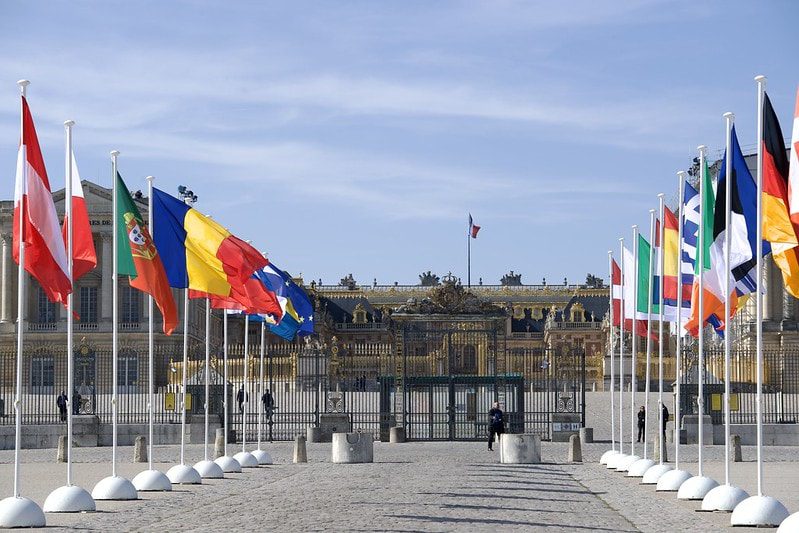
French President Emmanuel Macron gathered European Union leaders in Versailles on Thursday and Friday, March 10-11th, to discuss the situation between Ukraine and Russia. On this occasion, the 27 participants reaffirmed their solidarity with Ukraine, and threatened Russia with tougher sanctions if the war continued.
EU leaders also addressed the thorny issue of energy dependence on Russia. Since energy independence cannot be achieved in one go, a phased exit plan will be put in place. EU leaders agreed on a plan to exit the EU’s fossil fuel dependence on Russia by 2027. Rising energy prices and policies to cushion their impact on Europe’s populations were also discussed.
EU High Representative for Foreign Affairs and Security Policy Josep Borrell expressed his intention to double the amount of the EU’s financial contribution to support Ukraine’s armament. The funding comes from the “European Peace Facility,” a €5 billion fund created and replenished by the member states outside the community budget. A first installment of €500 million was released at the end of February. The money from the European Peace Facility is used to reimburse arms supplies taken by member states from their stocks. All of the arms are currently transiting through Poland, which is now the strategic reserve for the Ukrainian army.
The EU’s increased support for Ukraine, announced at the Versailles summit, led to strong condemnation from Vladimir Putin and his foreign minister Sergey Lavrov. Lavrov called the Western arms deliveries “dangerous.” “Those who are supplying arms to Ukraine must of course understand that they will be held responsible for their actions,” said Sergei Lavrov.
French President Emmanuel Macron addressed questions about his dialogue with the Russian president, which was intended to resolve the war conflict. To English international journalists in Versailles, he displayed a smiling optimism: “You know, I’m definitely optimistic.” Macron’s confidence in itself would have raised eyebrows, but his demeanor became a topic of farce after his address to French journalists. Turning to them, his countenance appeared grave and serious, and he expressed concern to his fellow countrymen in exactly the opposite terms, saying he was “worried and pessimistic.”
The video of his two speeches went viral on social networks, while the hashtag #MacronMenteur (MacronLiar) quickly became the top Twitter trend in France. However, Emmanuel Macron—moments later—qualified his remarks, as seen in a more comprehensive video clip posted on Twitter by a BBC journalist: “You know, I’m definitely optimistic, but I also try to be realistic…” His political opponents denounced this ostensible practice of double-speak, from a president who has made the phrase “at the same time” his trademark—a way for him to try to reconcile opposites sometimes to the point of absurdity. Marine Le Pen thus denounced on BFM TV the “instrumentalisation” of the war by the president for the needs of his presidential campaign:
Emmanuel Macron se dit "pessimiste" et "inquiet" s'agissant de la crise en Ukraine devant les médias français mais "optimiste" devant les médias anglo-saxons : preuve qu'il instrumentalise cette guerre pour faire peur aux Français ! C'est indigne. #BFMPolitique #MarinePrésidente pic.twitter.com/LIdNKFHZa1
— Marine Le Pen (@MLP_officiel) March 13, 2022
A new 75 minute telephone exchange took place on Saturday, March 12th, between Macron, Putin, and German Chancellor Olaf Scholz to try to obtain—without success—a ceasefire from the Russians. Since their meeting on February 7th in the Kremlin, Emmanuel Macron has had nine telephone conversations with Vladimir Putin, according to the official count of the French presidency.
